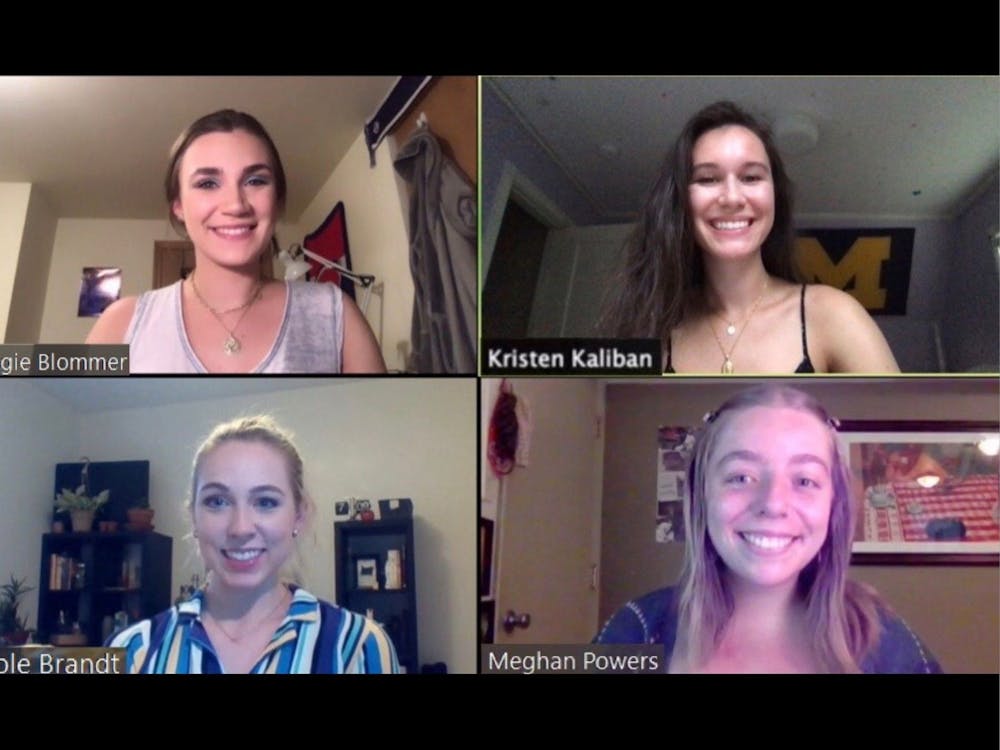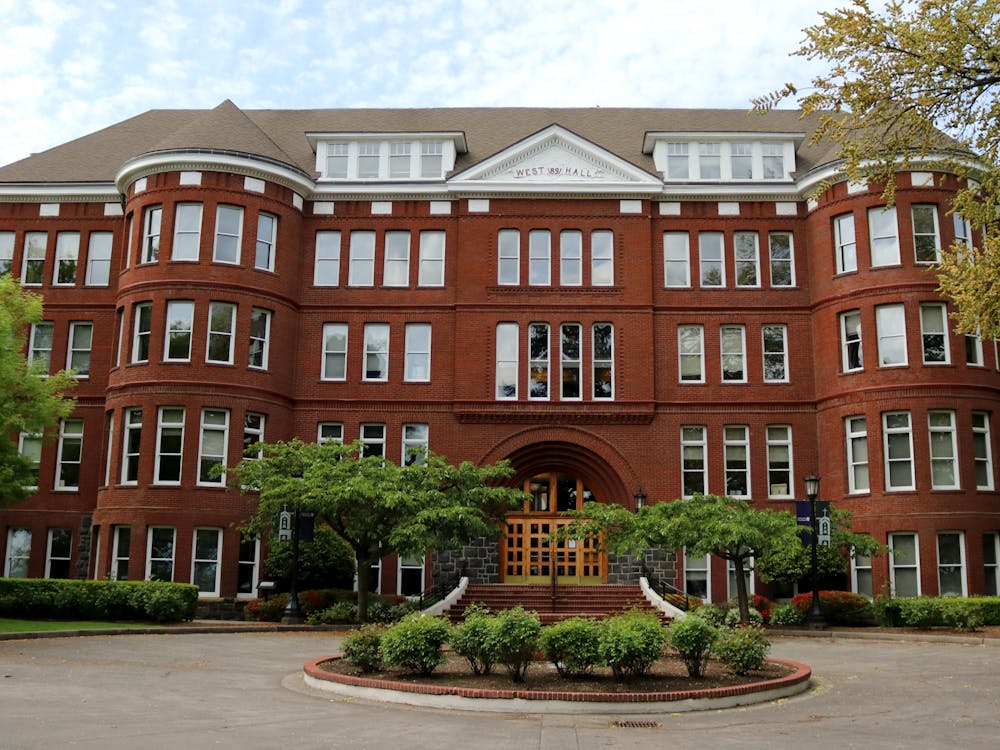The truth will set us free. That is the translation of the University of Portland’s motto “Veritas vos liberabit.” Here at The Beacon, we believe in that message wholeheartedly. It is our role to seek the truth on campus and report it.
Although the truth can cause tension and comes with its own set of consequences, it’s necessary for improvement, community, transparency and freedom of speech on this campus.
Jan. 30 is Student Press Freedom Day, a day dedicated to promoting censorship-free student media across the country and educating students, faculty, staff and administrators about the importance of free speech in student media, even in the face of controversy.
In honor of this day, we want to share why we think student press freedom matters and what The Beacon’s role is in protecting it here at UP.
There may be some misconceptions around campus about the role of student media. Fortunately, it is clearly described in our governing document, the UP Student Media Guide, which was approved by UP’s Board of Regents in 1991.
“The duty of student journalists is to serve the truth,” the guide states on page one. “Toward that goal, the student newspaper, radio station and yearbook are carriers of public discussion and information, acting on the students’ freedom of expression to learn and report the facts.”
We are fortunate to be able to control our own content. Not all campus newspapers have this freedom. We don’t take this responsibility lightly. Of course, there will always be people who wish we wouldn’t write about certain topics.
But we strive to report accurate and fair coverage consistently. In our newsroom, there is a handwritten sign that displays a quote from journalist Scott Pelley of CBS News and “60 Minutes”: “Is is right? Is it fair? Is is honest?” These questions serve as a checklist of criteria to follow when we are publishing our stories.
The Beacon presents content in two ways: first, to report fact-based, unbiased articles in our News, Living and Sports sections, and second, to amplify student voices in our opinion section. These two platforms not only give our staff the ability to bring attention to important stories, but also give other members of the UP community a chance to have their voices heard, too. Often, the result leads to real and significant change on this campus.
The Beacon starts the conversation, but the students are the ones that create real change at UP. Many of our articles have given a platform to important issues on campus, leading to student forums, petitions and calls to action.
Many of you remember the Wally Awards controversy last spring, an event that sparked anger and conversation among many. Olivia Sanchez, the news and managing editor of The Beacon at the time, published an opinion article detailing her experience at the ceremony. Her opinion received more than 65,000 page views in its first week and prompted over 20 people, including students, alumni, faculty and parents, to send in submissions to The Beacon with their thoughts and feelings in the weeks following the event.
People were active not only through their submissions, but also around campus, holding forums and discussions to figure out ways to move forward.
In the fall, Father Poorman directly referred to the Wally Awards in his annual convocation speech, announcing changes being made in response to the situation. They included a list of new initiatives and changes within Athletics. Arguably the most important change that he announced was Title IX making several changes to increase awareness of sexual misconduct on campus in their policies.
For 2017-2018 Editor in Chief Rachel Rippetoe, her “final love letter to UP” was a call for institutional, cultural change in light of the Wallys. She argued that the cultural problems UP was facing were not because of one student’s speech but instead because of a male-dominated leadership team making the calls for all UP students. She referenced the lack of women in top roles at UP, specifically the absence of women vice presidents. She wrote a lot of things that might have shocked people, but many students, staff and faculty contacted Rippetoe thanking her for saying the things many of them were afraid to say publicly.
Over the summer, Fr. Poorman promoted two women to Vice President positions (Sandy Chung and Andrea Barton). The executive team at UP still is not representative of the diversity of the student body, but it’s a step in the right direction. Whether Rippetoe’s words directly prompted the promotions or not, it’s likely they put pressure on the administration to make important changes.
While these stories are in recent memory, many of the greatest changes on campus happened before most of us got here. Did you know that in 2013 UP’s Nondiscrimination Policy did not include sexual orientation? Not that long ago, The Beacon served as a platform to amplify the voices of the “Redefine Purple Pride” movement. The movement was organized by students, faculty and staff who believed that all in the UP community, regardless of sexual orientation, deserved protection.
A few months later, the Board of Regents voted and changed the policy, adding sexual orientation to its protected list. Although they did not add gender identity, it was still a huge step forward for the LGBTQ community on campus, who felt that their voices were finally starting to be heard.
These are the types of changes that can happen when student media is allowed to report uncensored stories and open up community-wide discussions. The Beacon isn't limited to the voices of our staff. Your voice is important, too.
If you feel strongly about something happening on campus, share that with us. Frustrated with something happening on campus? Feel like you have a story the community needs to hear? Have thoughts on a story we published and want to add your voice to the conversation? Submit an opinion and share your perspective. Your voice adds so much value to what we do.
We love what we do here at The Beacon and it is a privilege to be at a university that grants student editors editorial authority over content. We are grateful for our readers who support our work and especially to those who allow us to use our platform as a means to amplify their voices. We believe the work we do is important and we couldn’t do it without all of you. Thank you for your continued readership and support. Happy Student Press Freedom Day.









